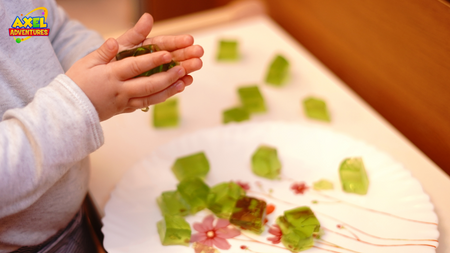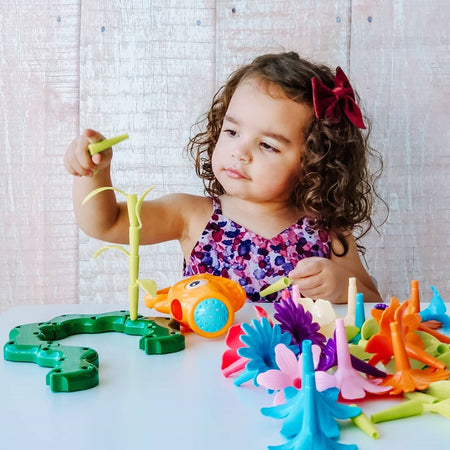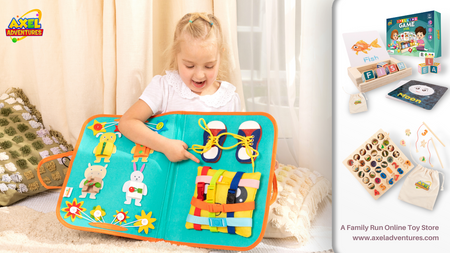
What Exactly Are Fine Motor Skills?
The refined use of the small muscles in the hand that control the palm, fingers, and thumb is referred to as fine motor skills. We rely on these skills for many daily tasks that allow us to care for ourselves and be independent, such as dressing, eating lunch, and writing.
It is important that children develop fine motor skills. Everyone understands how this will affect early writing, but this is only a small part of the picture.
These skills develop naturally over time and can be aided by experimenting with toys and activities that encourage the development of this small muscle. These small muscles in the hand, like any other muscle, must be strengthened to develop strength and dexterity. Working on activities that promote the development of your mini humans' fine motor skills will allow them to become more independent in eating their dinner, dressing, and eventually writing with a pen.

What are the benefits of fine motor skills?
Fine motor is almost always present in our lives. Humans are constantly on the move, picking up objects, manipulating them, and so on. The more children who develop these skills, the better they will be able to access the world around them.
A child's self-esteem can suffer if they are unable to complete these daily tasks, their academic performance suffers, and their play options are severely limited. Fine motor abilities, like any cognitive skill, will improve with practice. Intentional planning for fine motor practice will benefit other developmental domains as well as strengthen brain connections for learning.
As parents, you play an important role in your child's development of fine motor skills. The most important thing you can do is provide your child with fun and interactive opportunities. Fine motor skills development in early childhood education helps lay the groundwork for important future skills such as writing and self-care.

Here are some activities to develop fine motor skills:
Academic activities:- Coloring/Drawing
- Cutting
- Tracing
- Writing
- Using glass jewels
- Activities with snap cubes
- Play dough activities
- Sorting pom poms/ Objects with play tweezers
Free play activities:
- Building with legos and blocks
- Puzzles
- Dressing dolls
- Playing games like operation and lite-brite
- Beading toy jewelry
- Drawing with chalk
- Playing with play dough
Self-care activities:
- Tying shoes
- Buttoning and zipping shirts and jackets
- Eating and cutting food
- Brushing hair and teeth
- Using the toilet
Children's fine motor skills develop gradually as they participate in activities that help strengthen their muscles and coordination. Keep fine motor activities interesting and varied for your child! The more they want to play and explore fine motor skills-building activities, the more precise their movements will be.
Thank you for taking the time to read the entire post! I hope you found this blog post useful.
Lucy Carter








